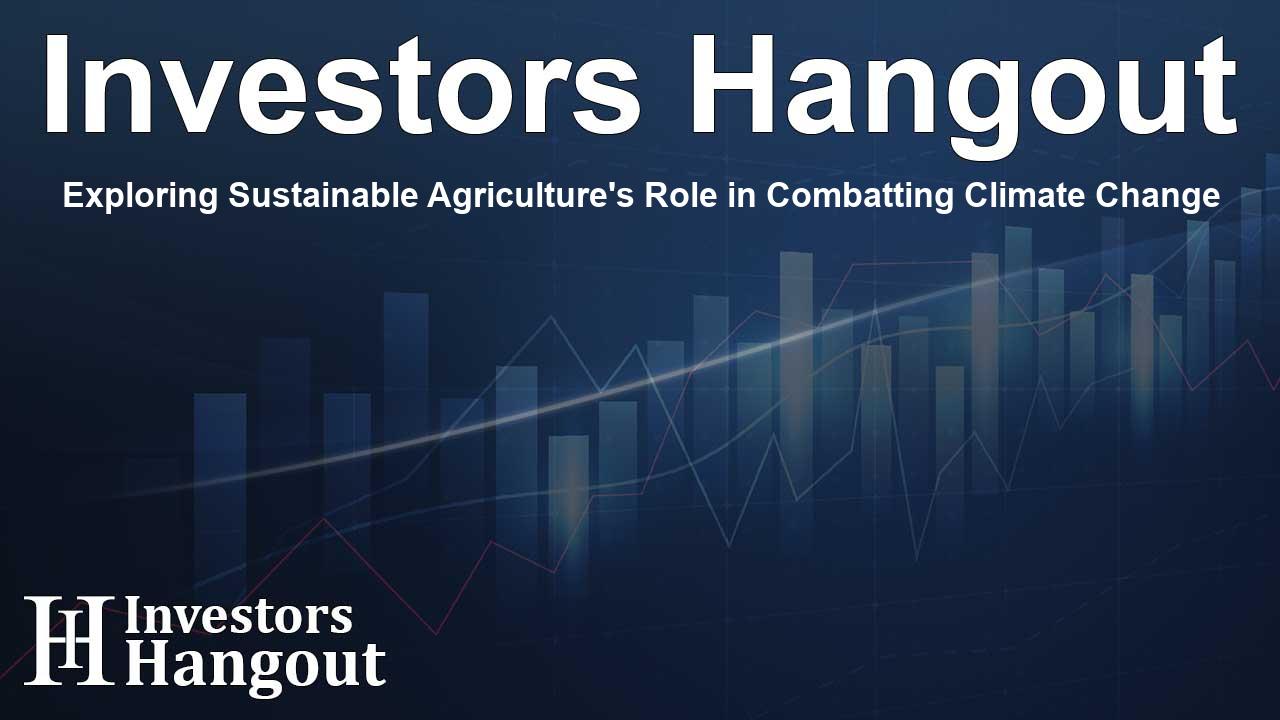Exploring Sustainable Agriculture's Role in Combatting Climate Change

Introduction: The Promise of U.S. Agriculture
A recent peer-reviewed report highlights the critical role that U.S. agriculture could play in addressing climate change. With the right conservation practices and modern technologies, agriculture not only has the potential to become greenhouse gas negative but can also improve farmer profitability and resiliency. This exciting development has been detailed by U.S. Farmers & Ranchers in Action (USFRA) in cooperation with the Council for Agricultural Science and Technology (CAST).
The Report's Key Findings
According to the report titled "The Potential for U.S. Agriculture to Be Greenhouse Gas Negative," submitted by a group of 26 independent researchers, the data compiled through scientific literature and computer simulations demonstrates how agricultural practices can adapt to further mitigate greenhouse gas emissions. The findings suggest that by enhancing certain practices, U.S. agriculture can significantly offset its carbon footprint.
Agricultural Opportunities for Emission Reduction
The researchers pointed out several vital areas where significant improvement can be achieved: soil carbon management, nitrogen fertilizer strategies, and advancements in animal production. These areas have the greatest opportunities to minimize the approximately 10% of overall U.S. greenhouse gas emissions attributed to agricultural activities. It is within these parameters that farmers can lead transformative practices to create a carbon sink rather than a source of emissions.
The Importance of Research and Innovations
Further research is pivotal to understanding how to best implement these strategies over time. The report stresses that while farming in the U.S. is already progressive and innovative, there is always room for improved methods and techniques that can yield better results both economically and environmentally.
Voices from the Field
Leaders within the agricultural community are excited about the report's implications. Michael Crinion, Chair of USFRA and a dedicated farmer, remarked on the agricultural sector's potential to not only meet the rising demands of a growing population but to do so sustainably. He emphasized how collective efforts are paving the way for agriculture to meet its dual commitments to productivity and environmental stewardship.
The Farmer's Ethos
The willingness of American farmers to embrace change and adapt new practices is highlighted as a defining characteristic. As Dr. Marty Matlock from the University of Arkansas explained, the industry is filled with innovators aiming to tackle challenges head-on. Tools like data analysis and sustainability frameworks provide the roadmap needed for future success.
About U.S. Farmers & Ranchers in Action
USFRA, a 501(c)(3) farmer-led organization, represents hundreds of thousands of farmers and ranchers across the nation. They foster collaboration and information-sharing, championing farmer voices both nationally and globally. Their mission centers on unlocking opportunities that enable farmers to thrive amid changing climate conditions.
About The Council for Agricultural Science and Technology
CAST is a nonprofit organization dedicated to disseminating unbiased, science-based information. They focus on fostering discussions among policymakers, the media, and the public, ensuring accurate understanding of agricultural science.
Frequently Asked Questions
What does greenhouse gas negative mean in agriculture?
A greenhouse gas negative agriculture refers to practices that not only minimize emissions but can reverse the overall carbon footprint, effectively absorbing more carbon dioxide than is emitted.
How can farmers contribute to reducing emissions?
Farmers can adopt conservation practices such as improving soil health, optimizing fertilizer usage, and enhancing energy efficiency in farm operations.
What role does technology play in sustainable agriculture?
Emerging technologies can provide farmers with data-driven insights to make informed decisions that enhance productivity while reducing environmental impact.
Is there financial support for farmers implementing sustainable practices?
Yes, many organizations offer grants and resources to assist farmers in integrating sustainable practices into their businesses, improving both profitability and ecological outcomes.
Who benefits from sustainable agriculture?
Sustainable agriculture benefits not only the environment but also farmers, consumers, and local economies by promoting healthier ecosystems and food security.
About The Author
Contact Owen Jenkins privately here. Or send an email with ATTN: Owen Jenkins as the subject to contact@investorshangout.com.
About Investors Hangout
Investors Hangout is a leading online stock forum for financial discussion and learning, offering a wide range of free tools and resources. It draws in traders of all levels, who exchange market knowledge, investigate trading tactics, and keep an eye on industry developments in real time. Featuring financial articles, stock message boards, quotes, charts, company profiles, and live news updates. Through cooperative learning and a wealth of informational resources, it helps users from novices creating their first portfolios to experts honing their techniques. Join Investors Hangout today: https://investorshangout.com/
The content of this article is based on factual, publicly available information and does not represent legal, financial, or investment advice. Investors Hangout does not offer financial advice, and the author is not a licensed financial advisor. Consult a qualified advisor before making any financial or investment decisions based on this article. This article should not be considered advice to purchase, sell, or hold any securities or other investments. If any of the material provided here is inaccurate, please contact us for corrections.
